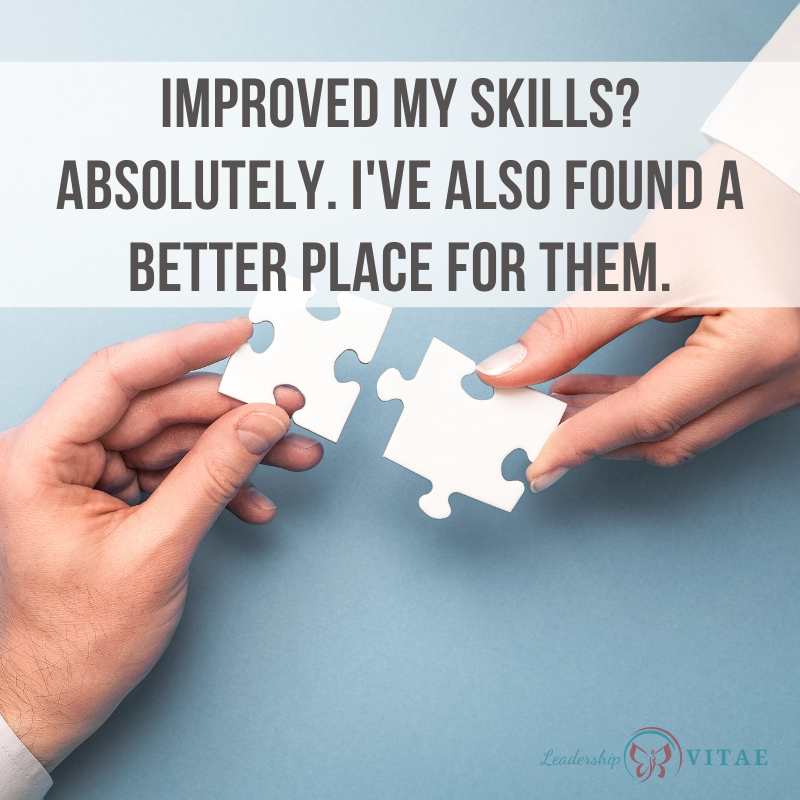
Years ago, I experienced a philosophical difference of opinion with my manager. He wanted me to lead by consensus. If the team majority agreed to something, then I should support it. Even if I thought it was going to drive our project off a cliff.
At the time, it felt like a black and white argument. If I went with consensus, my experience told me we’d fail and he agreed he’d hold me accountable. If I went forward with what I believed was the best course of action, I was not being a good leader, even if we were successful.
With years (and years) of subsequent experience under my belt, I now realize it’s not that simple. There were opportunities in abundance, on my part, my manager’s, and my team’s.
Since I can’t definitively speak for the others, I’ll focus on mine.
I realize now that I wasn’t being asked to blindly follow the majority and abdicate my authority. Instead, I was being asked to collaborate. That’s something I hope I would have understood if it had been framed differently.
An either/or debate wasn’t going to get me there. Instead, it’s taken several bad organizational fits and one really good one for me to finally understand the feedback I was given.
Collaborator, or not?
For many years, I’ve held onto that experience about consensus. There were other times and other messages, but that one moment crystallized a belief that I work best when I get to make the call.
I’m reminded of the movie The Replacements. Gene Hackman had his way of coaching. It wasn’t a consensus approach; it was his vision. He knew how he needed to win in an unwinnable environment.
For years, I thought…If we’ve got to debate on the best way to get it there, bring in someone else. I’m the one you call when you aren’t sure how it’s going to get done or it’s a project beyond saving. I’ll figure it out and rally folks around the path forward. Win the unwinnable.
I wasn’t shut off from others’ opinions. In fact, I loved getting new data points that would refine and shift the approach. Tell me something I don’t know, and I’ll happily adjust. Want to tell me how to do something with no new data? Not so much.
Then I started a new job in a heavily consensus-driven organization. In a few months, I was receiving positive feedback about my collaboration that I had never heard before. Was nominated for collaborator of the year. To say it shook my self-view is an understatement.
One rule of thumb for collaborating
As someone neuro-spicy, I can definitively say that there’s not much in the world of interpersonal or soft skills that is universal. The 80/20 rule MAY be right, but even that is likely misleading.
We are all showing up based on personal and professional history, cultural context, mental models, unique wiring/neurochemicals, and so much more. The idea that there’s one way to be a collaborator is nonsense.
It just so happened that the particular way I like to collaborate is an awesome fit in this environment. It’s also something I’ve been refining over the years so I was ready when I got here.
My early career was shaped by the military, so leadership inherently has levels of decision-making. By rank and position, you know who the decision-maker is. I excelled in that environment because it was crystal clear the calls I could make and when I had to make a pitch and get approval.
The rest of the world seems a lot squishier about decision-making. However, there’s one thing that’s pretty close to universal outside the military. People want to be heard. If they are involved in or impacted by a decision, they want their perspective considered.
It’s not if, but when
Allowing key stakeholders to feel heard…check.
Looking back, I realize that I asked key decision-makers for input early in a project so they’d leave me alone for the rest of it. With my team, it was the opposite. I’d wait until there was an approach or solution in my head, then I’d ask for their thoughts. If there was new data, I’d adjust course, but by then it was too late.
That late, the only way for someone to feel heard was if I did what they wanted, which might not have been possible. I was busy selling an idea and why it was the right way forward. If I had engaged them up front, then they could have more easily seen themselves in the solutions. Potentially arrived at the same conclusions.
In my new role, I came in very aware of what I didn’t know. In each interaction, with peers, team members, customers, and partners, I was open about my lack of knowledge of their business. My need to understand their perspective and get input.
In a consensus-driven environment, there was no way to be successful without it. But it didn’t feel as uncomfortable as I expected. By engaging early and often and putting ideas out for reflection that most could see themselves in, navigating the group felt comfortable instead of restrictive.
Fit matters
Our skills are critical, but how they fit into an organization is important as well. The same skill and approach in one company can land very differently in another.
Awareness of cultural norms and applying our skills in a way that accounts for them, is key to success for most soft skills. That’s not always easy.
I’ve been part of other consensus-driven organizations that didn’t want to see themselves that way. Clear decision-making was touted, but ignoring the informal norms would mean decisions were undermined.
Discovering how to authentically thread the needle of spoken and unspoken norms can make a difference between being seen as dismissive or collaborative. A thought partner or a lone wolf. If there’s too much of a disconnect, the organization may be a bad fit, no matter how developed our skills are.
Finding an organization where we can authentically apply our skills? That’s the sweet spot. Ideally, we can get actionable feedback if something isn’t landing exactly as we’d hoped to find that fit.
Have you struggled to connect and collaborate with others on your journey? What advice would you share? Please add your thoughts in the comments below.








